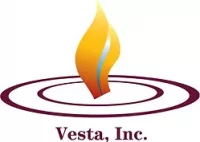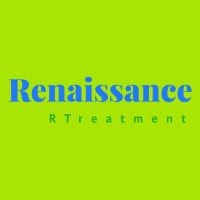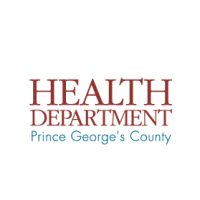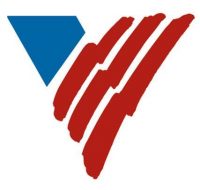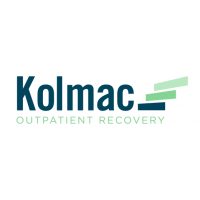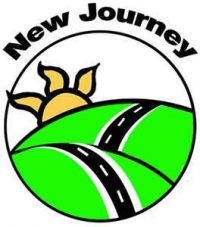Urban Counseling Institute
Drug Rehab Center in Temple Hills, Maryland
Urban Counseling Institute provides comprehensive and individualized addiction recovery and mental health counseling services, including medication assistance and support for co-occurring mental health disorders, utilizing Evidence Based Practices such as cognitive behavioral therapy and motivational interviewing, and offering resources such as community integration and peer support services.
About This Maryland Facility
Urban Counseling Institute in Temple Hills, Maryland is a leading addiction recovery and mental health counseling center that has been providing services to individuals, families, and groups from its facility since 2005. UCI provides comprehensive and individualized services, including psychotherapy, counseling, medication assistance, and support for individuals suffering from addiction and substance abuse. The institute also provides services for co-occurring mental health disorders, such as ADHD, depression, and PTSD, to ensure that patients receive the most comprehensive care for their individual needs.
Urban Counseling Institute’s services for addiction and substance abuse include an intensive outpatient program, which includes group and individual therapy, psychotherapies, and an array of other resources to help individuals stay sober and achieve successful outcomes. Clients can also access case management, community integration and resources, and peer support services to address issues such as relapse prevention. UCI also utilizes Evidence Based Practices, such as cognitive behavioral therapy, motivational interviewing, and family systems therapy, to help individuals become productive members of society.
Urban Counseling Institute is a proud recipient of the Maryland Higher Education Commission's Certificate of Approval and is accredited by the Commission on Accreditation of Rehabilitation Facilities (CARF). UCA has also been recognized with the Substance Abuse and Mental Health Services Administration (SAMHSA) Award of Excellence and is a long-time member of the National Association of Alcoholism and Drug Abuse Counselors (NAADAC). In addition to providing addiction treatment services, UCA also offers a wide range of resources for those struggling with mental health, including behavior modification, anger management classes, and trauma-focused therapy.
Genders
Ages
Modality
Additional
Accreditations
State License
SAMHSA
Conditions and Issues Treated
Many people who struggle with opioid addiction need to attend specific programs like methadone , Suboxone or Vivitrol clinics.
These types of programs will provide the patient with legal, prescription medications that can help them overcome their cravings for illegal opioids like heroin or fentanyl . If the patient has a chronic condition like Hepatitis C, they must undergo treatment before they can begin taking these medications.
Dual Diagnosis refers to someone who is both dealing with addiction and another mental health issue.
There are different kinds of Dual Diagnosis: A person who simultaneously experiences both a mental illness and an addiction disorder. Or, a person who experiences one or more coexisting (simultaneous) mental health conditions in addition to a primary substance use disorder.
Some conditions that commonly co-occur with addiction include:
- Personality Disorders (Borderline, Narcissistic)
- Mood Disorders (Bipolar Disorder, Depression, Anxiety Disorder)
- PTSD (Post Traumatic Stress Disorder), OCD (Obsessive Compulsive Disorder), ADHD (Attention Deficit Hyperactivity Disorder)
- Schizophrenia, Psychosis, Hallucinations, Delusions
Levels of Care Offered at Urban Counseling Institute
This center offers a variety of custom treatment tailored to individual recovery. Currently available are Aftercare Support, Drug Rehab, Dual-Diagnosis, Intensive Outpatient, Outpatient, Partial-Hospitalization, with additional therapies available as listed below.
Outpatient addiction treatment is beneficial for people who are able to function well in their day-to-day lives. It is recommended for people who are not yet ready to end their relationships with friends or family members who might be encouraging drug and alcohol use.
Intensive outpatient treatment is beneficial for:
- People who are able to attend treatment more than 3 times per week.
- People who do not meet the criteria for inpatient treatment.
- People who are able to contribute to their own recovery outside of the treatment center.
- People who are motivated towards recovery.
- People who are able to overcome addiction on their own without the need for higher levels of care.
Outpatient treatment programs provide drug and alcohol addiction treatment through individual sessions with a counselor, group therapy, 12-step meetings, and other activities to help individuals gain sober living skills. Most programs are designed for those individuals who have completed a medically supervised detoxification program and provide opportunities for clients to begin the process of early recovery.
Outpatient programs also offer a level of medical support as needed and psychological backing through therapy. Clients are encouraged to live at home, though there may be some flexibility regarding this requirement based on the circumstances and needs of each patient.
Outpatient treatment is perhaps the most common type of dual diagnosis program available. It does not pose a significant financial burden on patients. However, it is essential to note that outpatient treatment does not provide the support and supervision given in residential programs. Some addicts may need this level of support to maintain their sobriety.
Partial Hospitalization Program, or PHP, is a type of drug addiction rehabilitation in the patient’s home. Patients often have to come into Urban Counseling Institute for treatment on weekday evenings and weekends. They must also attend an intensive outpatient program at least 9 hours per week while attending PHP. The patient will meet with a counselor or therapist to help them work through their addiction issues. This type of treatment is used for patients who can go out among society but are at risk of relapsing due to continued exposure to drugs or alcohol.
People who have completed a rehab program often need continued support from the addiction treatment team in order to remain abstinent from drugs and alcohol. Aftercare can be beneficial for personal, social, and emotional growth.
Common aftercare options include:
- Individual Therapy – this type of addiction counseling is available on a one-on-one basis. This can be beneficial for people with a high degree of emotional turmoil and a strong desire to overcome addiction.
- Group Therapy – this type of addiction counseling is available in a group setting. This type of treatment can be beneficial for people who are unable to attend regular therapy appointments due to other responsibilities.
- Family Therapy – this type of addiction counseling is available to the family members of addicts. This can be beneficial for people who are unable to fully comprehend what their loved ones are experiencing due to addiction.
Therapies & Programs
Therapy sessions focused on the individual addict can provide much-needed guidance as they work toward overcoming their addiction. These types of sessions typically involve guidance from a therapist, who will help addicts identify and process their feelings and cravings.
During these sessions, addicts may develop plans for coping with the triggers that typically lead to relapse and learn how to avoid those triggers during their recovery process.
If you are looking for drug recovery, couples therapy can be a great option. This type of therapy can help rebuild trust and joy in relationships that may have been damaged by addiction. It can also help reduce the dysfunctional behavior in a relationship that may trigger addiction. A patient’s partner will be involved in the process. They can also benefit from therapy, especially if they are trying to live with an addict.
The main goal of family therapy for drug addiction is to create an environment where communication can occur without judgment, hostility, or blame that often occurs within a family.
Family therapy is a type of group problem-solving that aims to improve communication and relationships between the patient, their family, and sometimes friends. The therapist is with the family as they learn to communicate with each other differently, especially with the addict when s/he is using.
The family can learn to reduce their enabling behavior or rally together and support each other during tough times. The patient also learns how to deal with their addiction and maintain sobriety while interacting with the family.
Different types of addiction treatment services are available. Within this article, group therapy is of interest due to its high success rate compared to individual therapy. Group therapy settings are beneficial because they allow recovering addicts to build a strong support network.
Benefits of group therapy are:
- Reduces feelings of isolation
- Immediate access to social support in the form of fellow addicts in recovery
- Lowers risk of relapse
- Increases rate of sobriety
- Builds coping skills that can be applied to everyday life
Trauma Therapy is a form of therapy that involves working with a patient to help them process and understand the past trauma(s) in their life. The idea behind it is that while some people can experience traumatic events and not have lasting psychiatric symptoms, many others will. In these cases, memories of the event get hidden from consciousness but continue to influence how the person processes and copes with things in their life. They may avoid situations that resemble what happened or become suddenly angry or irritated to a situation that reminds them of a past event.
With the help of a therapist, people can go back over memories and experiences. This helps them understand why they are having problems coping with certain situations and how they can change how they think and react to things. This therapy is typically done using techniques such as visualization, discussion, and writing down thoughts and feelings.
Trauma therapists will work with clients to help them understand their past and present relationships. Many times, patients may believe that something is inherently wrong with them or that they are unworthy of love. A therapist aims to correct these negative feelings and behaviors by helping the person realize that their actions do not reflect who they truly are.
One of the main goals of trauma therapy is to help clients express their emotions and talk about what they are feeling. This benefits both to increase awareness of how certain events have impacted them in the past and enables patients to realize that they can make changes in their lives.
Cognitive Behavioral Therapy (CBT) is used by drug treatment centers to help addicts comprehend the causes of their substance abuse and the consequences that follow. Through CBT, clients learn to recognize and avoid high-risk situations and cope with challenging situations when they arise.
CBT treatment often includes a combination of individual therapy, group therapy, lectures, and other activities. The treatment’s goal is to help addicts gain self-control and maintain abstinence from drugs and alcohol over the long term so that an addict can get sober and lead a more productive life.
CBT is particularly effective in helping people overcome their drug problems, especially people whose drug abuse is motivated by self-defeating beliefs and emotions.
REBT stands for rational emotional behavior therapy. This type of cognitive-behavioral therapy, or CBT, combines images with thoughts and behaviors to provide deep self-help education in the process of recovery from addiction.
It’s important because it allows one recovering addict to work through their issues on their knowledge they have support if needed.
Rational Emotive Behavioral Therapy (REBT) is based on the idea people operate under many irrational but habitual patterns of thought which fuel harmful practices and feelings. As one learns to identify these destructive patterns, one can replace them with healthier thoughts and behaviors.
Those struggling with addiction in Maryland can benefit from learning certain life skills. It is not as simple as quitting drinking or taking drugs and thinking that the hard part is over. Being sober means living a whole new way of life. Many recovering addicts have found that they need to develop talents like time management, organization, communication skills, socialization skills, and self-esteem to make their life in sobriety work.
Drug and alcohol addiction can lead to a breakdown in life skills. Learning certain life skills can help those who are struggling with addiction. Life skills training at Urban Counseling Institute in Temple Hills, MD teaches patients skills such as time management, budgeting, and social abilities to improve their quality of life and prevent relapse.
An addict’s life skills are maladaptive, meaning they are counterproductive. An addict may have learned poor time management skills growing up, have a hard time budgeting money, or be socially awkward. An addict’s poor life skills can lead to relapse and the inability to achieve long-term sobriety. Life skills training teaches patients effective coping mechanisms, which can help them live a clean and sober life.
Payment Options Accepted
For specific insurance or payment methods please contact us.
Is your insurance accepted?
Ask an expert, call (888) 674-0062
Additional Details
Specifics, location, and helpful extra information.
Temple Hills, Maryland 20748 Phone Number(301) 278-7956 Meta DetailsUpdated November 25, 2023
Staff Verified
Patient Reviews
There are no reviews yet. Be the first one to write one.
Temple Hills, Maryland Addiction Information
For the past decade, Maryland's rate of drug use and abuse has significantly increased. The overdose rate is currently higher than the national average. This epidemic is due to the many industries where manual labor is required. As soon as prescription opioids were more readily accessible a large part of manual workers started using–and eventually abusing–the painkillers.
Treatment in Nearby Cities
- Leonardtown, MD (40.6 mi.)
- Lexington Park, MD (47.2 mi.)
- Andrews Afb, MD (3.9 mi.)
- Catonsville, MD (32.8 mi.)
- White Plains, MD (16.3 mi.)
Centers near Urban Counseling Institute
The facility name, logo and brand are the property and registered trademarks of Urban Counseling Institute, and are being used for identification and informational purposes only. Use of these names, logos and brands shall not imply endorsement. RehabNow.org is not affiliated with or sponsored by Urban Counseling Institute.




